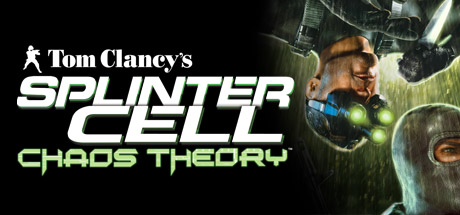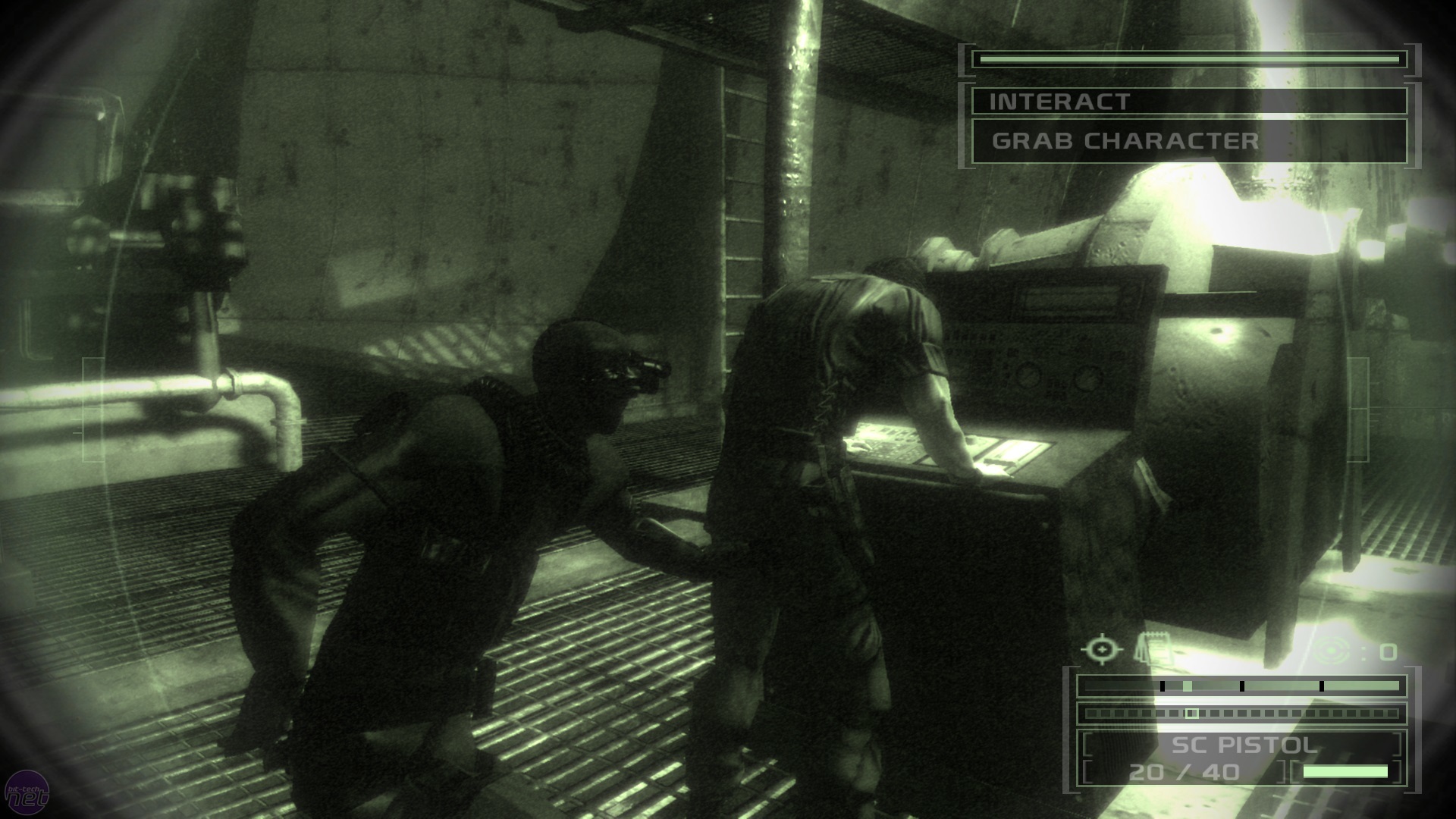Forum Links
Thread Information
Thread Actions
Splinter Cell: Chaos Theory|Review|
08-15-16 09:48 PM
datiel12 is Offline
| ID: 1295705 | 1211 Words

POSTS: 71/96
POST EXP: 74184
LVL EXP: 54173
CP: 6511.8
VIZ: 4848

 Tom Clancy's Splinter Cell: Chaos Theory is a stealth, action-adventure video game developed by Ubisoft. The game focuses as the Third Echelon Splinter Cell field agent Sam Fisher as he races to prevent the next World War between the Chinese, North Korea, South Korea, and Japan as tensions run high. Like it's predecessors, the game has heavy influences of stealth but with some added new capabilities and features that helped make this universally beloved by critics and fans alike. It's hard to believe that there was a time where both critics and fans alike could actually get along. This was a game that was worth of such attention. Synopsis Once more, you take control of Sam Fisher as mentioned above, him and Third Echelon are caught in between the rising tensions of the aforementioned factions. It is up to Sam and Third Echelon to find out the real threat causing tensions between those factions and put a stop to it before the tensions and outside interference cause another World War III. Filled with betrayal, double-crosses, and all that you expect in a espionage game. Game play  Chaos Theory takes the player in a stealth-like game setting, typical of the previous games and within it's genres. But before even starting the game, you get to The actual game is played in third-person and you move around and sneak your way though the levels completing whatever objective that comes up along with some bonus, optional ones. As you play, you have several gadgets to use depending on the level and the kit you've chose. In addition, probably the most important mechanic is the visibility bar and the ambient noise bar in which lets you know how much sound is making and how much the environment is (the bars above the "SC Pistol"). Features like this makes this game superb in stealth action. Although the light bar has been present in every game, the noise bar is a new feature and the capability of the background muffling some of the noise Fisher makes is rather particular and makes for interesting game play. Ubisoft definitely were definitely going in the right direction when making these mechanics. Other mechanics include the AI being more advanced, now with patrolling guards capable of finding previous bodies should they not be properly hidden. In previous games, leaving an area with a enemy in well-lit areas caused alarms to off since the game scanned for it. In Chaos Theory, enemies will patrol the level/area and If they stumble upon them at any point, it will cause an alarms. Surprisingly enough , alarms triggering don't end the mission but make it much more harder. _(Disc_1)-1444664855.jpg) Another major change within the game is the close quarters combat system, capable of making you choose between lethal and non-lethal approaches as well as adding a combat knife he can use to interrogate even normal guards to get information on the level itself for the player as well as making for some interesting dialogue. All in all, the game takes previous game play mechanics and idea from the past and improve on it exponentially. It is a good example of how to make a sequel to a game. Modes   This game's features include 10 single player missions that range from 30 minutes to hours depending on how you play and skill level. In addition comes multiplayer's campaign, adding 7 more missions with unique mission catered for the use of teamwork to complete. Returning from the previous Pandora Tomorrow is Spies vs Mercenaries in it's Vs. Mode. Here, you can (However, I should note that unless you're playing on system link in co-op campaign, the likelihood of playing Spies vs Mercenaries is extremely slim) Pros
Cons
Should you play it? Absolutely. Fans of the previous Splinter Cell games, fans of challenging games, and fans of the espionage genre are highly encouraged to play this game. The story is superb, the game play is an genuine improvement, the multiplayer co-op is fun with a friend, and the game mode "Spy vs Mercenaries", should you be capable of playing it, seems enjoyable and has been popular within the community and fans previously capable of playing it. Those who're not fans of espionage or challenging games can give this one a pass.  Tom Clancy's Splinter Cell: Chaos Theory is a stealth, action-adventure video game developed by Ubisoft. The game focuses as the Third Echelon Splinter Cell field agent Sam Fisher as he races to prevent the next World War between the Chinese, North Korea, South Korea, and Japan as tensions run high. Like it's predecessors, the game has heavy influences of stealth but with some added new capabilities and features that helped make this universally beloved by critics and fans alike. It's hard to believe that there was a time where both critics and fans alike could actually get along. This was a game that was worth of such attention. Synopsis Once more, you take control of Sam Fisher as mentioned above, him and Third Echelon are caught in between the rising tensions of the aforementioned factions. It is up to Sam and Third Echelon to find out the real threat causing tensions between those factions and put a stop to it before the tensions and outside interference cause another World War III. Filled with betrayal, double-crosses, and all that you expect in a espionage game. Game play  Chaos Theory takes the player in a stealth-like game setting, typical of the previous games and within it's genres. But before even starting the game, you get to The actual game is played in third-person and you move around and sneak your way though the levels completing whatever objective that comes up along with some bonus, optional ones. As you play, you have several gadgets to use depending on the level and the kit you've chose. In addition, probably the most important mechanic is the visibility bar and the ambient noise bar in which lets you know how much sound is making and how much the environment is (the bars above the "SC Pistol"). Features like this makes this game superb in stealth action. Although the light bar has been present in every game, the noise bar is a new feature and the capability of the background muffling some of the noise Fisher makes is rather particular and makes for interesting game play. Ubisoft definitely were definitely going in the right direction when making these mechanics. Other mechanics include the AI being more advanced, now with patrolling guards capable of finding previous bodies should they not be properly hidden. In previous games, leaving an area with a enemy in well-lit areas caused alarms to off since the game scanned for it. In Chaos Theory, enemies will patrol the level/area and If they stumble upon them at any point, it will cause an alarms. Surprisingly enough , alarms triggering don't end the mission but make it much more harder. _(Disc_1)-1444664855.jpg) Another major change within the game is the close quarters combat system, capable of making you choose between lethal and non-lethal approaches as well as adding a combat knife he can use to interrogate even normal guards to get information on the level itself for the player as well as making for some interesting dialogue. All in all, the game takes previous game play mechanics and idea from the past and improve on it exponentially. It is a good example of how to make a sequel to a game. Modes   This game's features include 10 single player missions that range from 30 minutes to hours depending on how you play and skill level. In addition comes multiplayer's campaign, adding 7 more missions with unique mission catered for the use of teamwork to complete. Returning from the previous Pandora Tomorrow is Spies vs Mercenaries in it's Vs. Mode. Here, you can (However, I should note that unless you're playing on system link in co-op campaign, the likelihood of playing Spies vs Mercenaries is extremely slim) Pros
Cons
Should you play it? Absolutely. Fans of the previous Splinter Cell games, fans of challenging games, and fans of the espionage genre are highly encouraged to play this game. The story is superb, the game play is an genuine improvement, the multiplayer co-op is fun with a friend, and the game mode "Spy vs Mercenaries", should you be capable of playing it, seems enjoyable and has been popular within the community and fans previously capable of playing it. Those who're not fans of espionage or challenging games can give this one a pass. |
| I SPEELED MAI COFFEE!!! |
Affected by 'Laziness Syndrome'
Registered: 03-30-15
Last Post: 2260 days
Last Active: 480 days


 User Notice
User Notice 


